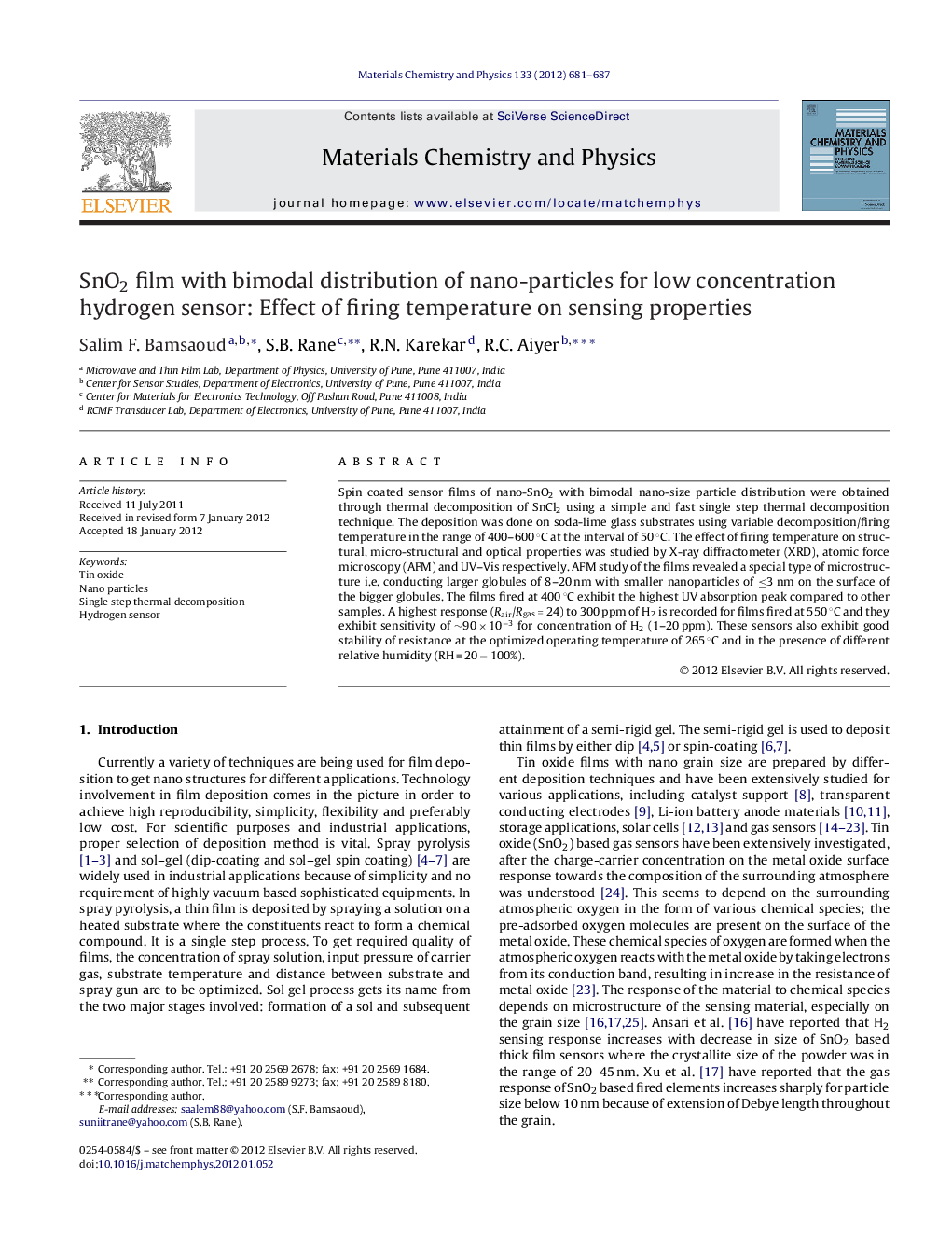| کد مقاله | کد نشریه | سال انتشار | مقاله انگلیسی | نسخه تمام متن |
|---|---|---|---|---|
| 1523237 | 1511827 | 2012 | 7 صفحه PDF | دانلود رایگان |

Spin coated sensor films of nano-SnO2 with bimodal nano-size particle distribution were obtained through thermal decomposition of SnCl2 using a simple and fast single step thermal decomposition technique. The deposition was done on soda-lime glass substrates using variable decomposition/firing temperature in the range of 400–600 °C at the interval of 50 °C. The effect of firing temperature on structural, micro-structural and optical properties was studied by X-ray diffractometer (XRD), atomic force microscopy (AFM) and UV–Vis respectively. AFM study of the films revealed a special type of microstructure i.e. conducting larger globules of 8–20 nm with smaller nanoparticles of ≤3 nm on the surface of the bigger globules. The films fired at 400 °C exhibit the highest UV absorption peak compared to other samples. A highest response (Rair/Rgas = 24) to 300 ppm of H2 is recorded for films fired at 550 °C and they exhibit sensitivity of ∼90 × 10−3 for concentration of H2 (1–20 ppm). These sensors also exhibit good stability of resistance at the optimized operating temperature of 265 °C and in the presence of different relative humidity (RH = 20 − 100%).
► Synthesized SnO2 with bimodal nanosize distribution by thermal decomposition of SnCl2.
► The influence of firing temperature on the optical, electrical and sensing properties was studied.
► Hydrogen with low concentration (1–20 ppm) was used for sensing study.
► The AFM showed bimodal microstructure (globules of 8–20 nm with smaller nanoparticles of ≤3 nm).
► The stability of the sensors resistance with respect to time and humidity is also reported.
Journal: Materials Chemistry and Physics - Volume 133, Issues 2–3, 16 April 2012, Pages 681–687